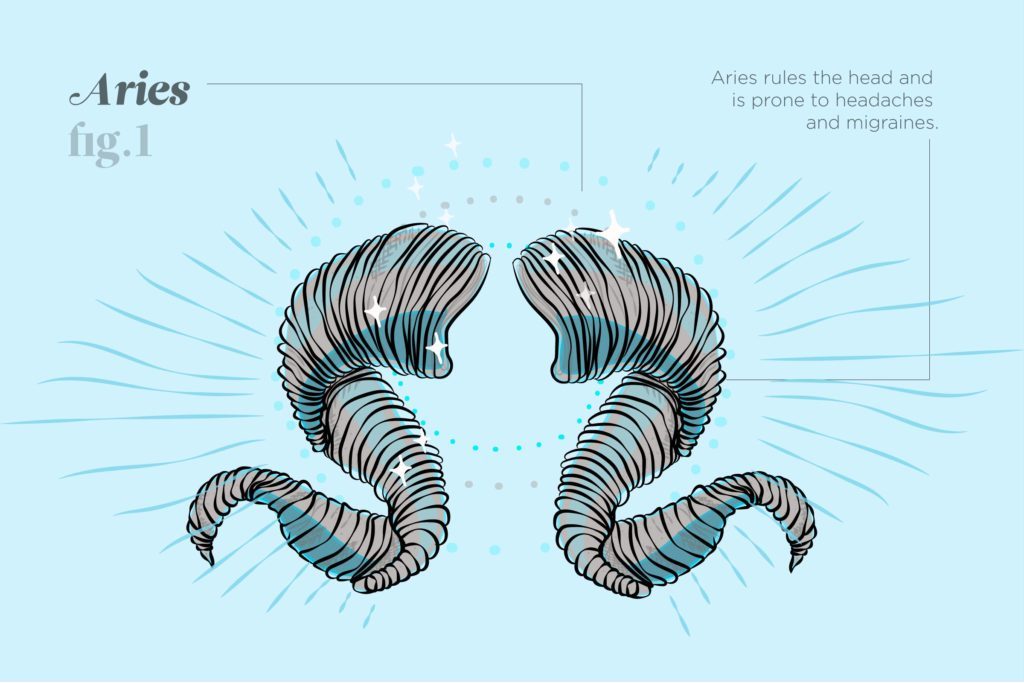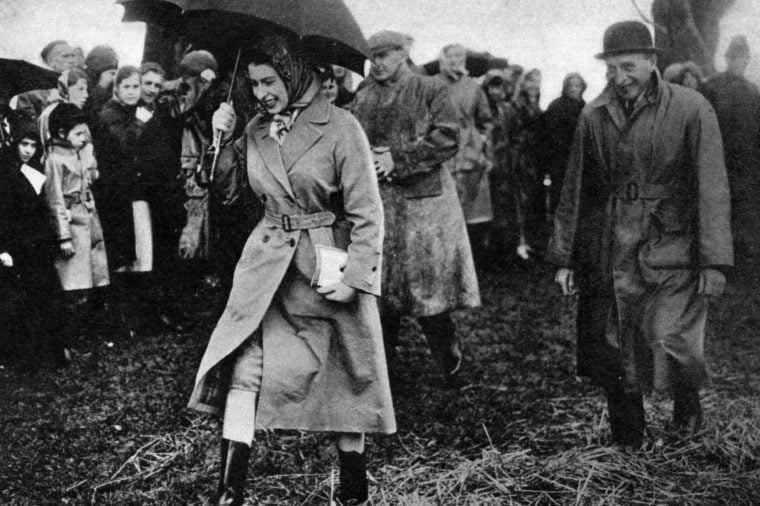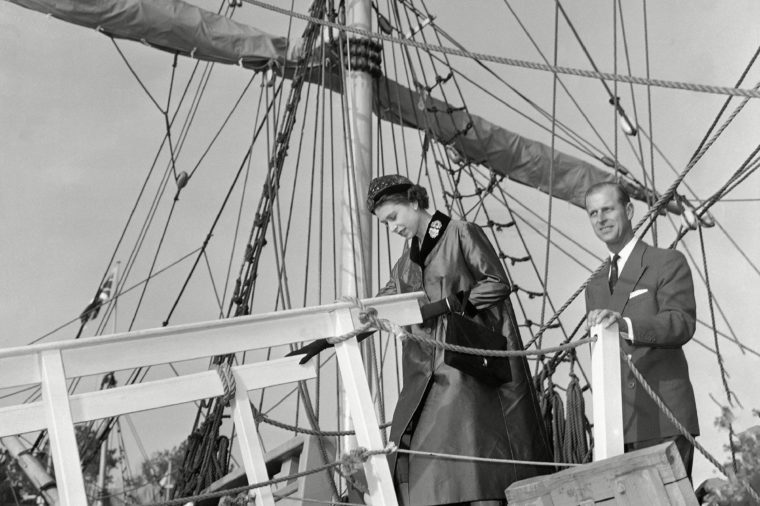الخميس، 31 مايو 2018
Johnson & Johnson Receives another Multi-million Dollar Verdict in Asbestos Case

Johnson & Johnson (J & J) was handed a $25.75 million verdict for failure to warn customers about health risks associated with its baby powder products that have been found to contain asbestos. Honeywell/ Bendix, Borg Warner, and Fel-Pro were also named in the suit. The jury found that J & J was responsible for two-thirds of the damages to the victim.
Joanne and Gary Anderson filed the suit and received $21.75 million in compensatory damages and an additional $4 million in punitive damages. It is believed she contracted pleural mesothelioma from using J & J baby powder often on her hands and feet as an avid bowler, and on her children when they were babies.
In April, a New Jersey couple was awarded $117 million after the husband contracted cancer from using J&J talcum powder for many years. Many other similar cases are currently awaiting their day in court.
Since talc and asbestos are often mined and found near each other naturally, talc products can often be contaminated with asbestos. Companies like J & J who deny the existence of the harmful mineral in their products are purposefully putting consumers at risk.
Johnson & Johnson, of course, is unhappy with the ruling and plans to appeal. Spokeswoman Carol Goodrich stated that they will continue to defend their products even though they contain the carcinogen.
from California Mesothelioma Law Blog https://ift.tt/2H8EqTp
الأربعاء، 30 مايو 2018
الثلاثاء، 29 مايو 2018
The Broader Impact of Asbestos Exposure

Any exposure to asbestos enhances the risk of succumbing to mesothelioma or other asbestos-related illnesses. There is no such thing as a safe exposure level. While no one disputes the physical danger associated with asbestos, the emotional aspect of exposure is less well-understood. Recent research has begun to shine a light on just what people exposed to asbestos experience. This will help determine what they need to cope with the psychological aftereffects of coming into contact with a potentially deadly substance.
Handling Fear
Unsurprisingly, numerous studies have shown that asbestos exposure is a significant stressor. When people are under a great deal of stress, they tend to lash out at the nearest target, meaning that asbestos exposure can affect whole families.
Stress can lead to physical symptoms, as well. Sleeplessness, anxiety, difficulty concentrating and other side effects are common.
Experience Matters in Treatment and Response
No individual is equipped to deal with asbestos-related illness alone. It takes a team of physicians and medical providers to give the right care. It often takes one or more attorneys to hold the right parties accountable for the asbestos exposure. It takes family, friends or other loved ones to emotionally support the victim through a difficult time. Getting the right treatment and strategy in place requires the help of people who are experienced in asbestos related problems.
Moving Forward Helps
Serious illness leads to many of the same responses as the loss of a loved one. The stages of grief may apply, even though the situation is different. One of the best ways to combat the denial or listlessness often seen in people with mesothelioma and other serious illnesses is to have a plan. If you understand the physical and legal reality of the situation, you can create a strategy to address it. Having a plan can make the emotional struggle much easier to bear.
A mesothelioma diagnosis is often unexpected and always painful. It is not something you should attempt to deal with on your own. Turn to loved ones, and to professionals who understand the illness to help you through this difficult time.
from California Mesothelioma Law Blog https://ift.tt/2kvslPo
الاثنين، 28 مايو 2018
الأحد، 27 مايو 2018
السبت، 26 مايو 2018
الجمعة، 25 مايو 2018
الخميس، 24 مايو 2018
13 Fascinating Facts You Never Knew About Our Oceans
The reason it’s blue? The sun

The “deep blue sea”—and our “blue planet” with it!—owe their iconic color to the light of the sun. When the sun shines on the ocean, the water absorbs the longer red and orange wavelengths of light while reflecting blue light back. This will only happen, though, with a large amount of water; the more water you have, the bluer it is. This is why the water you drink out of a glass doesn’t appear ocean-blue. This process of light absorption and reflection is also the reason the sky is blue—but the blue color of the ocean is not because it’s reflecting the color of the sky, as many people believe. Here are some more science facts everyone believes that are totally false.
The post 13 Fascinating Facts You Never Knew About Our Oceans appeared first on Reader's Digest.
from Reader's Digest https://ift.tt/2IOi4rW
10 Bizarre Human Body Features You Didn’t Know Existed
Immunity to sleep deprivation
 No, they’re not vampires, but people with a mutation of the DEC2 gene can fall short on sleep yet feel fine. For the 1 percent of the population with this mutation, around six hours a night is fine—an amount that after a few nights would wreck most people. Those with the condition are called familial natural short sleepers (FNSS), and experts believe that some famous people, such as Margaret Thatcher and Winston Churchill, may have had it.
No, they’re not vampires, but people with a mutation of the DEC2 gene can fall short on sleep yet feel fine. For the 1 percent of the population with this mutation, around six hours a night is fine—an amount that after a few nights would wreck most people. Those with the condition are called familial natural short sleepers (FNSS), and experts believe that some famous people, such as Margaret Thatcher and Winston Churchill, may have had it.
The post 10 Bizarre Human Body Features You Didn’t Know Existed appeared first on Reader's Digest.
from Reader's Digest https://ift.tt/2LsGpWn
14 Hilarious Cartoon Puns That Somehow Never Get Old
Risky business

At least the returns are free.
The post 14 Hilarious Cartoon Puns That Somehow Never Get Old appeared first on Reader's Digest.
from Reader's Digest https://ift.tt/2IMtQ6u
9 of the Most Stunningly Beautiful Underwater Photos Ever Taken
“Green Turtles in the rays” by Greg Lecoeur (France)

As green turtles started circling Lecoeur in Tenerife, the largest of the Canary Islands in Spain, the photographer captured this gorgeous underwater action shot with sunlight peeking through the surface. See the most gorgeous hot air balloon shots you’ve ever seen.
The post 9 of the Most Stunningly Beautiful Underwater Photos Ever Taken appeared first on Reader's Digest.
from Reader's Digest https://ift.tt/2IH6ALc
This Is the Difference Between Dementia and Alzheimer’s
Dementia vs. Alzheimer’s
 First thing to know: How to tell the difference between dementia vs. Alzheimer’s disease. Dementia is an umbrella term for symptoms like impaired memory and thinking that interferes with daily living; Alzheimer’s disease is a specific type of dementia. Other types of dementia include vascular dementia, dementia with Lewy bodies, frontotemporal dementia, Parkinson’s disease, and Huntington’s disease.
First thing to know: How to tell the difference between dementia vs. Alzheimer’s disease. Dementia is an umbrella term for symptoms like impaired memory and thinking that interferes with daily living; Alzheimer’s disease is a specific type of dementia. Other types of dementia include vascular dementia, dementia with Lewy bodies, frontotemporal dementia, Parkinson’s disease, and Huntington’s disease.
“Alzheimer’s is the most common form of dementia—about 60 to 70 percent of the time a patient with dementia has Alzheimer’s,” says Richard Isaacson, MD, Director of the Alzheimer’s Prevention Clinic at New York-Presbyterian/Weill Cornell Medical Center. The reason you hear about Alzheimer’s most often is not only because it is the most common type of dementia, but also because “the science behind Alzheimer’s is the most advanced across all dementias,” Dr. Isaacson says. These are some of the early signs of Alzheimer’s.
The post This Is the Difference Between Dementia and Alzheimer’s appeared first on Reader's Digest.
from Reader's Digest https://ift.tt/2xwVmlZ
Arizona Court Rules Families not Covered for Secondary Asbestos
Arizona Court Rules Families Not Covered For Secondary Asbestos
Is there an angry emoji for court decisions? The Arizona Supreme Court has let employers off the hook for second-hand asbestos exposure resulting in mesothelioma.
Every mesothelioma case is tragic, but this case was about a child exposed to asbestos fibers carried home on his father's work clothes. The Arizona courts, counter to legal precedent in other jurisdictions, recently affirmed that employers have no legal duty to employees or their families for "take-home" asbestos. California courts, on the other hand, have held employers liable.
Second-hand Asbestos Is Just as Dangerous
It is well-established that mesothelioma can develop from secondary exposure to asbestos. At work, asbestos-laden dust and debris clings to the clothing of workers or military personnel. At home, the asbestos fibers become airborne and are inhaled or ingested when workers remove their soiled uniform, when the spouse handles the laundry, or when children come in contact with the parent's contaminated clothing. Family members who developed mesothelioma were probably exposed repeatedly over the years.
The Occupational Safety and Health Administration (OSHA), and courts and legislatures in many states, have acknowledged the link between second-hand asbestos and mesothelioma.
Are Employers Responsible for Secondary Exposure?
At question in the recent Arizona court decision was whether the employer is liable for asbestos exposure in the workplace that is transferred to others (family members) through second-hand contact. Ernest Quiroz Jr., who died in 2014, had sued Reynolds Metal Co., where his father worked for 35 years. The lawsuit contended that Mr. Quinoz developed mesothelioma from exposure to his father's work clothes, and that Reynolds was negligent for allowing a hazardous work environment.
Quiroz' father did not realize he was exposing his child to a deadly carcinogen, but Reynolds would have known of the dangers of asbestos during his employment from 1948 to 1983. Yet the trial court ruled that Reynolds (now owned by Alcoa) owes no duty to Quinoz for the secondary exposure. The Court of Appeals granted summary judgment to the employer, and the Arizona Supreme Court affirmed the appellate ruling.
The Arizona high courts rationalized that anyone who ever came into contact with an employee who had primary workplace exposure could potentially sue. Thus they concluded that this small "slippery slope" risk outweighs the benefits of holding employers accountable when the spouses and children of their former workers later develop cancer. The Arizona decisions also cleared employers on the basis of foreseeability, which flies in the face of medical evidence. Certainly by the '70s and '80s (if not earlier) the harm to family members was foreseeable.
California and Other States Do Hold Employers Accountable
Courts in seven states, including California, have affirmed that employers do have a duty of care for take-home asbestos. However, in 15 states the courts have held that no such duty exists. Two other states have statutory bars against liability for secondary asbestos exposure. In the remaining states, the issue is unsettled and determined on a case-by-case basis.
Brayton Purcell LLP has successfully achieved settlements and verdicts in countless take-home exposure cases for decades.
from California Mesothelioma Law Blog https://ift.tt/2saZK5g
What Your Zodiac Reveals About Your Health
Aries (March 21-April 19)

The ram sign is unsurprisingly all about your noggin. If you experience pain up there, you might want to check out these home remedies for headaches. “Aries rules the head and is prone to headaches and migraines,” explains Suzanne Gerber, a top professional astrologer. “Especially the kind brought on by stress, which can also cause tight jaws or TMJ.” The best antidote: heart-pumping exercise, ideally with some competition built in. Find out the healthiest zodiac sign of 2018.
The post What Your Zodiac Reveals About Your Health appeared first on Reader's Digest.
from Reader's Digest https://ift.tt/2kk9HtI
8 Mosquito-Repelling Plants You Need in Your Backyard ASAP
Basil

Basil is not just for adding amazing flavor to your favorite dishes. This herb has major gardening benefits, like attracting bees, enhancing the flavor of other plants, and perhaps most important, repelling pesky mosquitoes. Matteo Grader, a pest control specialist for the London-based pest control company, Panther Pest Control, says gardeners highly recommend planting basil in the garden as a mosquito deterrent, thanks to its strong scent. Grader recommends also growing basil to make a natural mosquito repellent that won’t harm your other plants. To do this, take about 100 grams of fresh basil leaves, picked right from your garden. Pour a half-cup of boiling water onto the leaves, and then a half-cup of vodka. Mix thoroughly and add the mixture to a clean spray bottle. Spray your natural, basil-based repellent in your outdoor area to keep mosquitoes at bay. Find out the 10 reasons you’re getting bitten by mosquitoes.
The post 8 Mosquito-Repelling Plants You Need in Your Backyard ASAP appeared first on Reader's Digest.
from Reader's Digest https://ift.tt/2GLVQ8c
6 Missing Person Mysteries That Were Miraculously Solved
Mary Seow

Mary Seow was persuaded to sell her home in Singapore and move to mainland China to invest the money, only to realize it was all a scam. She lost everything. Seow tried to work her money back by sweeping streets and carrying branded goods, but it wasn’t enough to make up for what she’d lost. After making her way to Hong Kong, Seow followed the lead of other people experiencing homelessness—sleeping in a 24-hour McDonald’s. When AP ran a story about the “McRefugees,” Seow’s family saw her name quoted, and her son flew to Hong Kong to bring her home.
The post 6 Missing Person Mysteries That Were Miraculously Solved appeared first on Reader's Digest.
from Reader's Digest https://ift.tt/2IJ0dab
7 Life Secrets of People Who Never Seem Frazzled
Calm people go to a happy place in their head

The project is due, but something has gone wrong. Your child’s ‘tude has been especially sassy today. Or maybe the grocery store clerk is just moving too. Darn. Slowly. No matter what the trigger for your stress is, Columbia University clinical psychologist Laura Markham, PhD, recommends summoning a memory that makes you feel calm, secure, and happy. This visualization technique allows stress and tension levels to drop immediately, and any pain you’re feeling in the moment to lessen so that you can stay calm and relaxed. The more you use this technique, the less stressed you’ll get. “As you practice thinking about your happy place again and again, unprocessed memory is now linked to the happy place,” says Markham. “Not only do they keep you from getting frazzled, but they keep you from getting as triggered as often.” Learn how to fix 10 sneaky sources of stress at work.
The post 7 Life Secrets of People Who Never Seem Frazzled appeared first on Reader's Digest.
from Reader's Digest https://ift.tt/2GMb9hp
الأربعاء، 23 مايو 2018
11 Foods with More Calcium Than a Glass of Milk
How much is in a glass of milk
 Getting your daily dose of calcium isn’t just important when you’re young. Calcium helps with muscle function, works to regulate your heartbeat and nerve signals, and aids in preventing blood clots and osteoporosis, all of which are very important as an adult. There are 305 milligrams of calcium in one cup of milk; the average adult should be getting about 1,000 milligrams of calcium per day. Try adding these foods to your diet to meet your daily numbers. Watch out for these signs you’re not getting enough calcium.
Getting your daily dose of calcium isn’t just important when you’re young. Calcium helps with muscle function, works to regulate your heartbeat and nerve signals, and aids in preventing blood clots and osteoporosis, all of which are very important as an adult. There are 305 milligrams of calcium in one cup of milk; the average adult should be getting about 1,000 milligrams of calcium per day. Try adding these foods to your diet to meet your daily numbers. Watch out for these signs you’re not getting enough calcium.
The post 11 Foods with More Calcium Than a Glass of Milk appeared first on Reader's Digest.
from Reader's Digest https://ift.tt/2ILJDCc
14 Craziest Things Garbage Collectors Have Found in the Trash
Ashes of the deceased
 “One time we found a guy’s ashes in one of the standard plastic tubs funeral homes usually give out. His information was still on the side. Our management contacted his family using the information that was written on the side of his plastic tub. But the family said they threw the poor man out on purpose.” Think dumping your loved one’s ashes in the trash is nuts? Check out these 10 crazy things people have actually shipped in the mail.
“One time we found a guy’s ashes in one of the standard plastic tubs funeral homes usually give out. His information was still on the side. Our management contacted his family using the information that was written on the side of his plastic tub. But the family said they threw the poor man out on purpose.” Think dumping your loved one’s ashes in the trash is nuts? Check out these 10 crazy things people have actually shipped in the mail.
The post 14 Craziest Things Garbage Collectors Have Found in the Trash appeared first on Reader's Digest.
from Reader's Digest https://ift.tt/2IH5I94
15 Cringe-Worthy Stories About the Worst Roommates Ever
Llama mama
 “My freshman year of college I walked into my dorm where my roommate’s stuff was. There had to be about 100 stuffed llamas spread throughout my room. On her bed, desk, floor, hanging from the wall. Then she walked in and handed me one of her stuffed llamas and said, “This is Carl. Carl loves you.” I immediately filed for a new roommate and ended up getting a new one who moved in and was super into anime and filled the walls with anime posters and action figures. From that moment on, I decided I will never have a roommate again.” —CU from Connecticut
“My freshman year of college I walked into my dorm where my roommate’s stuff was. There had to be about 100 stuffed llamas spread throughout my room. On her bed, desk, floor, hanging from the wall. Then she walked in and handed me one of her stuffed llamas and said, “This is Carl. Carl loves you.” I immediately filed for a new roommate and ended up getting a new one who moved in and was super into anime and filled the walls with anime posters and action figures. From that moment on, I decided I will never have a roommate again.” —CU from Connecticut
The post 15 Cringe-Worthy Stories About the Worst Roommates Ever appeared first on Reader's Digest.
from Reader's Digest https://ift.tt/2Lo7U3j
15 Secrets to Staying Healthy on Vacation
Pack your medications in a carry-on bag
 To avoid losing your important meds to an airline baggage mixup, pack your meds in a carry-on, recommends Johnnie Yates, MD, medical director of travel and tropical medicine at Kaiser Permanente in Hawaii. If you take prescription drugs, you need to have the necessary paperwork with you throughout your trip. “To ensure your drugs aren’t confiscated, keep medicines in original, clearly labeled containers or packaging, and bring a copy of your prescriptions,” recommends Dr. Yates. “The prescription and medication labels should match the name on your photo ID.” Some destinations forbid certain medications, so double-check with your destination’s embassy before you leave. Learn more of the top 13 things that will get you flagged by the TSA.
To avoid losing your important meds to an airline baggage mixup, pack your meds in a carry-on, recommends Johnnie Yates, MD, medical director of travel and tropical medicine at Kaiser Permanente in Hawaii. If you take prescription drugs, you need to have the necessary paperwork with you throughout your trip. “To ensure your drugs aren’t confiscated, keep medicines in original, clearly labeled containers or packaging, and bring a copy of your prescriptions,” recommends Dr. Yates. “The prescription and medication labels should match the name on your photo ID.” Some destinations forbid certain medications, so double-check with your destination’s embassy before you leave. Learn more of the top 13 things that will get you flagged by the TSA.
The post 15 Secrets to Staying Healthy on Vacation appeared first on Reader's Digest.
from Reader's Digest https://ift.tt/2x3w3ZS
8 of the Most Mysterious Archaeological Treasures on Earth
Stonehenge
 Located on a flat plain north of Salisbury, England, Stonehenge is a circular formation of massive stones (the largest are 30 feet tall and weigh 25 tons). Scientists believe it was a monument marking a massive burial site that was built between four and five thousand years ago. No one has ever been able to figure out how or why the monument was built—or whether it was even built by humans; archaeologists this past month uncovered evidence that at least two of the stones had been in place long before humans dwelled on Earth, shares Forbes.
Located on a flat plain north of Salisbury, England, Stonehenge is a circular formation of massive stones (the largest are 30 feet tall and weigh 25 tons). Scientists believe it was a monument marking a massive burial site that was built between four and five thousand years ago. No one has ever been able to figure out how or why the monument was built—or whether it was even built by humans; archaeologists this past month uncovered evidence that at least two of the stones had been in place long before humans dwelled on Earth, shares Forbes.
The post 8 of the Most Mysterious Archaeological Treasures on Earth appeared first on Reader's Digest.
from Reader's Digest https://ift.tt/2LnxDIY
Westport, IN
We purchased a cafe/retail shop in July 2017, and people have since welcomed us with open arms. They treat us as if they’ve known us all our lives. People wave and speak to one another. They honk at you when they see you. At the town council meeting, at the conclusion of the business portion of the meeting, the president goes around the room to ask if there are any concerns, many of which he’ll address right then and there.
Stories About Westport
The people of Westport are a very giving community. When the hurricanes hit last year, we collected over $800 from tips to send to Samaritan’s Purse to help the victims. People look out for one another here. When we sponsored a Thanksgiving meal for the community last year, people came in to get takeout boxes for their neighbors who were too ill to attend.
The post Westport, IN appeared first on Reader's Digest.
from Reader's Digest https://ift.tt/2kkLvYg
Can You Guess What This Fireworks Display Is Called?
Peony
 This “spherical break of colored stars” fireworks display is apparently the most common, so your chances of spotting it in the skies are pretty good. Many fireworks are named after flowers because they burst out of a shell or seed! Find out the scary statistics behind why the Fourth of July may just be the most dangerous holiday.
This “spherical break of colored stars” fireworks display is apparently the most common, so your chances of spotting it in the skies are pretty good. Many fireworks are named after flowers because they burst out of a shell or seed! Find out the scary statistics behind why the Fourth of July may just be the most dangerous holiday.
The post Can You Guess What This Fireworks Display Is Called? appeared first on Reader's Digest.
from Reader's Digest https://ift.tt/2GJMOZj
The Best Restaurant Deals for Your Money
Buffalo Wild Wings: Buy one, get one wings
 Tuesday is the best day to visit Buffalo Wild Wings, but not for the reason you’d expect. The restaurant chain is trading in its hugely popular Tuesday half-off wings special for a BOGO boneless wings deal. You’ve gotta admit, it’s still a bargain. If you think about it, you’re still getting double the wings for half the price. Want to re-create the experience at home? We’ve got just the thing.
Tuesday is the best day to visit Buffalo Wild Wings, but not for the reason you’d expect. The restaurant chain is trading in its hugely popular Tuesday half-off wings special for a BOGO boneless wings deal. You’ve gotta admit, it’s still a bargain. If you think about it, you’re still getting double the wings for half the price. Want to re-create the experience at home? We’ve got just the thing.
The post The Best Restaurant Deals for Your Money appeared first on Reader's Digest.
from Reader's Digest https://ift.tt/2ki3ezm
A Stitch N Time in Asheville, NC
We help everyone that walks in the door. We keep Asheville looking good. We repair and fix all rips and tears, as well as hem dresses, pants, and sleeves. We embroider names and logos on anything the customer asks. We are great folks to know! We sewed up Bon Jovi’s pants when he was in town. We fixed Elton John’s jacket, and monogrammed a jacket for Reba. We’ve sewn patches on a jacket for Bob Morgan, the Memphis Belle Pilot. We made a shirt for Glenn Campbell. I have a million stories of the people we have sewn for. We did the balloons for the movie “My Fellow American,” and met James Gardener and Jack Lemon. I made a pair of sailor pants for Robin Williams when I lived in California, where Reggie Jackson was also a customer.
Stories About A Stitch N Time
Once, we had a customer who was 6’4″ and 250lbs. Her wedding dress needed to be tailored, and she was getting married on Christmas day. I spent Christmas Eve tailoring the dress and adding beads for her big day.
The post A Stitch N Time in Asheville, NC appeared first on Reader's Digest.
from Reader's Digest https://ift.tt/2GMtdrO
20 Most Beautiful Main Streets in America
Kent, Connecticut
 One of the many towns that has been compared to Gilmore Girls‘ Stars Hollow is Kent, Connecticut. It has the same main street appeals, including locally owned stores and town events and festivals. Twinkly lights wrap around charming inns on Kent’s main street, giving off a cozy New England vibe. These are the nicest places in every state in America.
One of the many towns that has been compared to Gilmore Girls‘ Stars Hollow is Kent, Connecticut. It has the same main street appeals, including locally owned stores and town events and festivals. Twinkly lights wrap around charming inns on Kent’s main street, giving off a cozy New England vibe. These are the nicest places in every state in America.
The post 20 Most Beautiful Main Streets in America appeared first on Reader's Digest.
from Reader's Digest https://ift.tt/2GJMJEZ
7 Silent Signs You Could Be Eating Too Much Protein
Why we need protein

Protein is a critical part of our diet—we need it to feel full, have energy, build and repair muscle, process nutrients, and boost immunity, among other vital roles.”Protein is made up of amino acids that are the building blocks of body tissues, including muscles, blood vessels, hair, skin, and nails. It’s also involved in the production of enzymes and hormones that help the body to function normally,” says Kaleigh McMordie, a registered dietitian nutritionist. Why are these amino acids so important? McMordie gives a quick anatomy lesson (in case you spaced out in 10th grade): There are some amino acids that the body can synthesize, but others, called essential amino acids, we must get through our diet. Animal protein sources, such as meat, fish, milk, and eggs, contain all nine essential amino acids while most plant-based protein sources don’t have the full complement of amino acids in the exact right amounts (there are some exceptions, like soybeans). “That’s why it is important to include a variety of protein sources in order to get all of the essential amino acids, especially for vegetarians,” McMordie says. And if you’re a regular exerciser, protein is especially important, according to diet and lifestyle dietitian and registered nutritionist, Keith Akoob, EdD. “Protein not only builds muscle, but it also repairs and maintains muscle,” he says. “Muscle cells, like all living tissue, have a life. They eventually need to be replaced, so repair and maintenance are critical roles for dietary protein.” Don’t miss 7 signs you might not be eating enough protein.
The post 7 Silent Signs You Could Be Eating Too Much Protein appeared first on Reader's Digest.
from Reader's Digest https://ift.tt/2s7CjKj
13 Things Lotto Winners Won’t Tell You
Easy come, easy go.

Whether they win $500 million or $1 million, about 70 percent of lotto winners lose or spend all our money in five years or less. These are the 13 things rich people never spend their money on.
The post 13 Things Lotto Winners Won’t Tell You appeared first on Reader's Digest.
from Reader's Digest https://ift.tt/2IF22AN
الثلاثاء، 22 مايو 2018
12 East Coast Getaways Locals Want to Keep Secret
Watch Hill, Rhode Island
 Unless you own a home in Watch Hill, you’ve probably never even heard of this affluent coastal enclave. Here’s what you’re missing: a walkable village with cedar-shingled cottages, waterfront mansions (ahem, Taylor Swift), blue hydrangeas, beautiful beaches, an ice cream shop, and an old-timey carousel. If you want to stay the night, can book a room at the Ocean House, an enduring grande dame hotel, or the recently revamped Watch Hill Inn. Don’t miss these other romantic small town destinations across the country.
Unless you own a home in Watch Hill, you’ve probably never even heard of this affluent coastal enclave. Here’s what you’re missing: a walkable village with cedar-shingled cottages, waterfront mansions (ahem, Taylor Swift), blue hydrangeas, beautiful beaches, an ice cream shop, and an old-timey carousel. If you want to stay the night, can book a room at the Ocean House, an enduring grande dame hotel, or the recently revamped Watch Hill Inn. Don’t miss these other romantic small town destinations across the country.
The post 12 East Coast Getaways Locals Want to Keep Secret appeared first on Reader's Digest.
from Reader's Digest https://ift.tt/2kf0FOw
24 Adorable Tooth Fairy Traditions You’ll Want to Try ASAP
Give them a receipt
 To make the teeth-for-treats transaction feel even more legit to your little one, make sure the Tooth Fairy leaves them a receipt under their pillow. Some adorable versions created even have a spot to rate the “tooth quality” and a barcode for authenticity. Here’s where you can get printable Tooth Fairy Receipts.
To make the teeth-for-treats transaction feel even more legit to your little one, make sure the Tooth Fairy leaves them a receipt under their pillow. Some adorable versions created even have a spot to rate the “tooth quality” and a barcode for authenticity. Here’s where you can get printable Tooth Fairy Receipts.
The post 24 Adorable Tooth Fairy Traditions You’ll Want to Try ASAP appeared first on Reader's Digest.
from Reader's Digest https://ift.tt/2keiNIy
The Entire Royal Family Tree, Explained in One Easy Chart
No family tree is cooler than that of the British royal family. Who wouldn’t want to be related to the ever-stylish Queen Elizabeth II? What’s interesting about the royals in particular is that many of them have titles determined by how they’re related to Her Majesty. Here, we break down who’s who in the Windsor family.

First comes Her Majesty, the Queen, who holds the highest level of the royal hierarchy. As the heir of the British Crown and constitutional monarch of Commonwealth realms, she has the utmost authority. Her husband is Prince Philip, the Duke of Edinburgh.
The Queen’s four children are: the Prince of Wales (the eldest son), the Duke of York (the second son), the Earl of Wessex (the youngest son), and the Princess Royal (the Queen’s daughter).
Charles, the Prince of Wales, was married to Diana, the Princess of Wales, until they divorced in 1996. Together, they had two sons: William, the Duke of Cambridge, and Harry, the Duke of Sussex. (Did you know Harry isn’t Prince Harry’s real name?) Prince Charles’ second and current wife, Camilla, uses the title the Duchess of Cornwall because the other title was too much associated with Diana. Prince William’s wife, Kate Middleton, has the title the Duchess of Cambridge. Their sons, George and Louis, are both Princes of Cambridge, while their daughter Charlotte is the Princess of Cambridge. Prince Harry’s wife, Meghan Markle, is now the Duchess of Sussex. Don’t miss these myths about the royal family that are completely false.
Andrew, the Duke of York, married Sarah, the Duchess of York. Before they divorced in 1996, they had two children, Princess Beatrice of York and Princess Eugenie of York. If one were male, his title would be Prince of York.
Edward, the Earl of Wessex, is married to Sophie, the Countess of Wessex. Their son James has the title Viscount Severn and their daughter is Lady Louise Windsor.
Princess Royal is the title given to a British monarch’s eldest daughter, but her husband receives no royal title. Princess Anne is currently married to Vice-Admiral Timothy Laurence.
Sadly, even though the Queen considers her corgis as family, the pups are not included in the family tree.
These powerful individuals have captured the world with their sophistication and grace, but that doesn’t mean they have evaded the spotlight of some juicy rumors. These are the 18 craziest conspiracy theories about the royal family.
The post The Entire Royal Family Tree, Explained in One Easy Chart appeared first on Reader's Digest.
from Reader's Digest https://ift.tt/2j015KZ
8 Ways You Might Be Loading Your Dishwasher Wrong
You fully rinse dishware before loading
 You might have heard that it’s a no-no to move dirty plates directly from the table to the washer—that caked-on food won’t completely come off during the cycle, right? When Consumer Reports tested dozens of dishwashers and loaded them up with the dirtiest plates they could muster, they found that the models did an “excellent” or “very good” job at getting them spotless. If you’re running a load right after a messy meal, just “scrape off large food particles and do not pre-rinse. Your dishwasher detergent’s job is to cling to food and help wash it away,” says Finishdishwashing.com. But if it may be days before your dishwasher is full enough to run, lightly rinse the plates first to prevent the dishwasher from getting smelly.
You might have heard that it’s a no-no to move dirty plates directly from the table to the washer—that caked-on food won’t completely come off during the cycle, right? When Consumer Reports tested dozens of dishwashers and loaded them up with the dirtiest plates they could muster, they found that the models did an “excellent” or “very good” job at getting them spotless. If you’re running a load right after a messy meal, just “scrape off large food particles and do not pre-rinse. Your dishwasher detergent’s job is to cling to food and help wash it away,” says Finishdishwashing.com. But if it may be days before your dishwasher is full enough to run, lightly rinse the plates first to prevent the dishwasher from getting smelly.
The post 8 Ways You Might Be Loading Your Dishwasher Wrong appeared first on Reader's Digest.
from Reader's Digest https://ift.tt/2J0gbf6
The Secret Sale Hobby Lobby Only Has Twice a Year
 Hobby Lobby has everything you could possibly ever want to give your home the design upgrade it desperately needs. You’re guaranteed to find good deals any time you step into the store, but we have news that every Hobby Lobby enthusiast will flip for: there’s a sale that can get you up to 90 percent off certain items.
Hobby Lobby has everything you could possibly ever want to give your home the design upgrade it desperately needs. You’re guaranteed to find good deals any time you step into the store, but we have news that every Hobby Lobby enthusiast will flip for: there’s a sale that can get you up to 90 percent off certain items.
Twice a year, Hobby Lobby has a secret sale on their home accents department that can net you some serious savings. The first one happens right after Mother’s Day and the second right after Christmas, according to hearthookhome.com. Remember, it’s a secret—meaning it’s definitely not advertised, so make sure to mark your calendars so you don’t forget! Find out other insider secrets to help you save at all your favorite stores, too.
Items typically start at a 50 percent to 66 percent off discount. Items that are still left after a few weeks will be discounted by 80 percent and then 90 percent shortly after. So, if you’re patient you’ll be able to snag a few extra knickknacks for your shelves for practically nothing.
The good news is that Hobby Lobby constantly has sales running and there are always great finds in the clearance section, so don’t fret if you need to get some summer décor and can’t hold out until the next secret sale. The bad news? There are a few items that never go on sale, such as cards or gift wrap, specialty paper, party supplies, licensed products, Cricut machines, or cake decorating and candy making supplies. Try finding deals on those at your local dollar store—and be sure to find out the items you should always be buying while you’re there.
The post The Secret Sale Hobby Lobby Only Has Twice a Year appeared first on Reader's Digest.
from Reader's Digest https://ift.tt/2GFodoH
13 Once-Popular Kitchen Trends That Are on the Way Out
Tile countertops

Tile countertops have made a comeback in recent years as they are less expensive than many other countertop materials, but they are difficult to maintain because they are prone to chips and grout stains. Instead, research the pros and cons of other countertop materials such as laminate, marble, and stainless steel. There are plenty of other countertop options to meet your needs and budget.
The post 13 Once-Popular Kitchen Trends That Are on the Way Out appeared first on Reader's Digest.
from Reader's Digest https://ift.tt/2IYFsGQ
The 15 Weirdest Ice Cream Flavors You Can Eat
Flavor: Cold Sweat
 Where to get it: Sunni Sky’s Homemade Ice Cream, Angier, North Carolina
Where to get it: Sunni Sky’s Homemade Ice Cream, Angier, North Carolina
What’s in it: Ice cream base, hot sauces, and pequín, habanero, and Thai chili peppers (store owners ask you to sign a waiver before you eat this!) Check out how to make ice cream without an ice cream maker.
The post The 15 Weirdest Ice Cream Flavors You Can Eat appeared first on Reader's Digest.
from Reader's Digest https://ift.tt/2KK4TJi
The 12 Absolute Worst Things You Can Do to Your Hair
Washing your hair too often—or not enough

Okay, you got the memo: Cleansing your hair more than you need to can strip away the natural oils that keep it healthy, thus making it more brittle and prone to breaking. And while the trend of washing less and less often is catching on, experts warn to tread lightly. “The pores on your scalp can become congested from excessive oil, which will attract even more dirt and debris,” says Lauren E. Hack, hairstylist and co-founder of LAUREN+VANESSA salon in New York City. Your best bet: Reduce the number of times you shampoo to three to four times a week. “In between shampoos, soak up oil with a light coat of dry shampoo on your roots and use a boar bristle brush to distribute hair oils from root to tip for extra natural shine and conditioning,” suggests Nick Penna, owner and lead stylist at SalonCapri in Boston. Check out these home remedies for dry, damaged hair.
The post The 12 Absolute Worst Things You Can Do to Your Hair appeared first on Reader's Digest.
from Reader's Digest https://ift.tt/2LgMc13
This Is The Real Meaning Behind Common Omens and Urban Legends
Black Cats
Long ago, visitors to English homes were expected to greet the family cat with a kiss to bring good luck. And in the 16th century, it was white cats that were a sign of bad luck, not like today’s belief that black cats crossing your path means misfortune.
More cat lore around the world: In Scotland, if a black cat happened to appear on the doorstep, the family believed their wealth would increase. In Italy, fisherman’s wives kept company with black cats to prevent disasters at sea. And back in the day, some folks thought a cat’s sneeze forecasted rain, while others believed unusually playful behavior signaled a storm was brewing. Seems there’s a black cat superstition for every culture. Here’s the reason behind the five most popular superstitions.
The post This Is The Real Meaning Behind Common Omens and Urban Legends appeared first on Reader's Digest.
from Reader's Digest https://ift.tt/2KKYe1n
Safety Advocates Continue to Beat the Drum for U.S. Asbestos Ban
 With people in the U.S. dying year after year from asbestos-related diseases, those of us who advocate tirelessly for justice for these victims continue to question why it is still legal in our country. In November, we reported that a new bill was introduced in the U.S. Senate that would ban asbestos in the U.S.
With people in the U.S. dying year after year from asbestos-related diseases, those of us who advocate tirelessly for justice for these victims continue to question why it is still legal in our country. In November, we reported that a new bill was introduced in the U.S. Senate that would ban asbestos in the U.S.
At that time, it was referred to the Committee on Environment and Public Works, where it still sits. Unfortunately, given the current disdain for environmental protections displayed by the Trump Administration and officials at the Environmental Protection Agency, known as EPA, progress toward this ban is unlikely in the near future.
EPA and asbestos
We have reported before that asbestos is one of the first 10 chemicals the EPA selected for evaluation under the Frank R. Lautenberg Chemical Safety for the 21st Century Act for its danger to health and the environment. Mesothelioma.com reported in September that public comments submitted as part of this process reflected support for a ban by asbestos abatement professionals, firefighters, environmental advocates, occupational health organizations and others.
Unfortunately, players in the chemical industry submitted comments against a ban, which is not a surprise. In particular, manufacturers of adhesives and sealants, gaskets and chlorine that still use asbestos in their products expressed opposition to banning asbestos.
A renewed call for a ban
On May 17, Linda Reinstein, the president of the Asbestos Disease Awareness Organization, published an article on the website of the Environmental Working Group, known as EWG, calling again for a national asbestos ban. She writes that 55 other countries have comprehensive bans in place and that EPA has the authority to do the same. She notes, however, that so far EPA appears to be falling short of that goal.
from California Mesothelioma Law Blog https://ift.tt/2IF0NSe
10 Things You Need to Know About Rosacea—Whether You Have It or Not
It’s caused by inflammation

You’ve probably heard of common skin conditions like psoriasis and eczema, but do you also know about rosacea? If not, you’ve got to listen up. “Rosacea is abnormal blood vessel growth in all layers of the skin, caused by internal problems and inflammation within the body and skin,” says Julia T. Hunter, MD, a dermatologist and founder of Wholistic Dermatology. This abnormal blood vessel growth is the result of low thyroid, fungal overgrowth internally, gut inflammation, and chronic sun overexposure, she says. Don’t miss these 6 new rosacea treatments that will help end the redness.
The post 10 Things You Need to Know About Rosacea—Whether You Have It or Not appeared first on Reader's Digest.
from Reader's Digest https://ift.tt/2LnRGHo
الاثنين، 21 مايو 2018
This Is What It Was Really Like to See Queen Elizabeth in the 1950s
Editor’s Note: In October 1954, when Queen Elizabeth II was just 28 years old, Reader’s Digest gained an eyewitness account of the world’s most influential royal. We’ve chosen to republish this excerpt from the original full-length article, due to the enduring interest in the British royal family.
 On the morning of Thursday, May 13, 1954, an RAF patrol plane, 200 miles from land, sighted a small black ship, spanking along as though in an exceptional hurry. She showed a mustard-colored smokestack, a white superstructure, and her raked bow pointed toward England. One look sufficed. The fliers broke into cheers, tossed caps around, and swooped down to salute the little vessel at deck level. Luck had selected them to be the first of millions of impatient Britons to welcome the royal yacht Britannia, bearing home Queen Elizabeth II after a six-month tour around her realm; their enthusiasm gave only a rough idea of what was waiting for Her Majesty at journey’s end. (These are 11 things Queen Elizabeth always takes when traveling.)
On the morning of Thursday, May 13, 1954, an RAF patrol plane, 200 miles from land, sighted a small black ship, spanking along as though in an exceptional hurry. She showed a mustard-colored smokestack, a white superstructure, and her raked bow pointed toward England. One look sufficed. The fliers broke into cheers, tossed caps around, and swooped down to salute the little vessel at deck level. Luck had selected them to be the first of millions of impatient Britons to welcome the royal yacht Britannia, bearing home Queen Elizabeth II after a six-month tour around her realm; their enthusiasm gave only a rough idea of what was waiting for Her Majesty at journey’s end. (These are 11 things Queen Elizabeth always takes when traveling.)
Elizabeth, acknowledging the RAF salute with a wave, was unaware that she was heading into a homecoming demonstration unprecedented in British history—an all-out people’s welcome, spontaneous, unrehearsed, tumultuous. She knew only that the Home Fleet waited to greet her at Plymouth in the morning and that her 50,000 miles of traveling would end on Saturday when she arrived in London and drove home in the ceremonial coach. It looked much like the usual routines prescribed for royal returns long centuries ago.
 This was one time, however, that the British people jumped the gun on routines. Instead of waiting conventionally to wave from London’s sidewalks, they suddenly cast tradition to the winds. They crowded into trains and buses and headed hilariously for the south coast. Even the British weather began going crazy. It forgot to rain. Larks sang. Lambs frolicked. The countryside shimmered in buttercups and daisies, primroses, bluebells, in spring tapestries.
This was one time, however, that the British people jumped the gun on routines. Instead of waiting conventionally to wave from London’s sidewalks, they suddenly cast tradition to the winds. They crowded into trains and buses and headed hilariously for the south coast. Even the British weather began going crazy. It forgot to rain. Larks sang. Lambs frolicked. The countryside shimmered in buttercups and daisies, primroses, bluebells, in spring tapestries.
By Thursday morning, roads groaned under a load of traffic unsurpassed since D-Day—cars, trucks, scooters, cycles, carts—all hurrying to the shore. Over footpaths and byways came hikers with knapsacks. Each hour, trains disgorged more and more thousands at coastal key points. Ports and small villages wore the resplendent air of momentarily awaiting the royal presence in the high street. From a thatched roof, perched over Mevagissey Harbour, flew a starched bed sheet, embroidered in red-and-blue cardboard letters. It read: “God Bless You, Dear!”
By noon, old folks and young, babies, even dogs, were massing on the cliffs. Repasts, spread over endless bluffs and headlands, uncovered an added reason for high spirits. The last of Britain’s food controls were ending. Out of brown paper bags and baskets cascaded sandwiches, spread with real butter, filled with actual meat; oranges, bananas, sugar cookies, candies, nuts. Like other achievements in the Queen’s brief reign—the Conquest of Everest, the Four-Minute-Mile, the British-Australian Cricket Trophy—the end of 14 years of rationing confirmed the mass belief that, in this second young Elizabeth, Old England had once more hitched her wagon to a star.
Content continues below ad
The sun sank. The long twilight waned. The wind rose. But still, the people waited.
The next day the multitudes camped on Rame Head were rewarded with a thrilling spectacle. The weather was now cryptically described as “Fair, with bright intervals.” Shortly before 9 a.m., the gray curtains shrouding Plymouth to the east parted as though snatched back by a giant hand. Through the opening appeared the dramatic silhouette of the Home Fleet, 17 ships of the line, dressed over-all and headed by Vanguard, Britain’s mightiest battleship. Behind Vanguard, deployed in three faultless columns, came carriers, cruisers, destroyers, frigates—a procession 3.5 miles long and 2 miles wide. The next moment gray curtains lifted in the west. Through them entered the royal yacht, escorted by destroyers. On the saluting bridge stood England’s queen and her tall sailor husband. (Check out these 16 rarely seen photos of Queen Elizabeth and Prince Philip.)
The flotillas approached each other majestically, gray shapes shearing gray waters, spray flying over long Atlantic swells. Then, abruptly, a hoist of signals snapped at Vanguard’s yardarm. The guns of the entire Home Fleet thundered in unison. The 21-gun royal salute crashed over the Devon hilltops, reverberating around the world by radio pickup. Britannia knifed on ruler-straight between the cheers, the gun smoke, the avenue of passing warships. Then came another signal: “Execute!” With the precision of a drill, the Home Fleet reversed course in a superb maneuver, maintaining exact station, two columns describing a semicircle to starboard, the third a corresponding swing to port. Great silver-snouted helicopters, the Royal Navy’s “hover birds,” carried the measure into the third dimension.
It was now decently in order for the Home Fleet, spread out behind Britannia like a bridal veil, to get on with the business of escorting her to the Isle of Wight.
“Your Majesty, with humble duty!” invited the flagship. Britannia accepted with pleasure and becoming surprise.
“A wonderful moment!” Britannia signaled back.
 By the queen’s wish, the 100-mile voyage was accomplished “as close inshore as is compatible with safety.” As a result, unnumbered millions of the self-appointed welcoming body obtained a view of the procession. In and out of fog, haze, squalls, and showers led the royal route. Contact, shore-to-ship, however, remained unbroken. It was sustained by bands, church bells, cannon, loudspeakers, telescopes, and an armada of intrepid small craft.
By the queen’s wish, the 100-mile voyage was accomplished “as close inshore as is compatible with safety.” As a result, unnumbered millions of the self-appointed welcoming body obtained a view of the procession. In and out of fog, haze, squalls, and showers led the royal route. Contact, shore-to-ship, however, remained unbroken. It was sustained by bands, church bells, cannon, loudspeakers, telescopes, and an armada of intrepid small craft.
The whole south coast had become one tremendous grandstand. The welcome built up to an uproarious pitch that a stranger might have thought overdone, almost hysterical. But a stranger could not have known the deep emotions that stirred the British on this day. They were not only welcoming home their hardworking young Queen. They were celebrating the success of a desperate struggle out of bankruptcy, showing the world a new and vital England risen from the ruin of war.
To Elizabeth, it was the finest homecoming gift in the world. Signals pouring into the yacht told her that production had reached an all-time high in British history, almost 50 percent above prewar. Gold and dollars were rushing into London to buy British stocks and bonds. Interest and sinking fund on the U.S. loan were fully paid. Steel, electricity, food outputs were all making records, exports were up 6 percent since 1953, wages 3 percent. Above all, the pound sterling, the infallible barometer of Britain’s rags or riches, had doubled in value, shortly would become a free exchange. To her the figures were anything but dull. (These are the laws Queen Elizabeth doesn’t need to follow.)
Content continues below ad
As the yacht steamed on, an incident underlined one of the reasons for Elizabeth’s popularity. In a bank of mist, the three-man crew of the fishing trawler Endeavour suddenly beheld the yacht looming almost above them. A young fisherman named Terry Akers rushed to the mast, dipped their red ensign in salute. Then he whipped off his cap and froze to attention beside his jerseyed shipmates. Gravely, the Queen gave an order, and the huge white ensign on Britannia dipped in acknowledgment as ceremoniously as if replying to an ocean liner. It was no grandstand play. No one ashore could even see it. It was simply that, to the queen, three fishermen earning their living from the sea were as important as the highest in the land. It is for count less such actions, coming from the heart, that Elizabeth’s people love her.
The Solent, the narrow channel between the mainland and the Isle of Wight, from which was launched most of the D-Day strike, offered the shorebound the first chance for a close-up. To safeguard vantage spots, many had camped overnight in cars, tents, even haystacks, for here it was that the Home Fleet would take leave of the queen with another dramatic maneuver—a high-speed mass convergence on Britannia, a precision turnoff at 1OO yards and a final sweep-past, all hands standing by to cheer.
But no sooner did the coast-guard lookout sight Britannia than the scene at the Solent turned to pandemonium, a three-ring circus covering air, sea, land. Without warning, aircraft of all description darted into the overcast: private, chartered, single and multi-engined—diving and churning, no two flying in the same direction. Now RAF flying boats battled to clear a path for an oncoming jet salute. The 60 navy jets streaked through the melee like comets, emerging miraculously in the clear. On the water things were in an equal turmoil. Small craft which had been decently restrained all day now suddenly up-anchored, escaping in all directions—yachts, trawlers, tenders, tugs, excursion steamers, dinghies, dories. They cut loose with a disregard for danger unequaled since Dunkirk. Driven by sail and power, they ducked inside warship screens, disappeared in wakes, popped up again like corks, waved arms, oars, lifebelts, rushing Britannia from every angle. Commands blinked from warships: “Little Ships Move Over!” and “Keep Off!”
 The destroyer Duchess finally saved the day. Breaking escort, she improvised a zigzag dance before the royal yacht, barking out paralyzing threats through her loudspeakers. She cleared a path just wide enough for the Home Fleet’s final ritual, another masterpiece of seamanship. The 17 great ships tore by, crews lining rails, caps lifting in a single motion, Vanguard’s band playing “God Save the Queen.” As the queen smiled and waved, the Home Fleet headed once more to sea.
The destroyer Duchess finally saved the day. Breaking escort, she improvised a zigzag dance before the royal yacht, barking out paralyzing threats through her loudspeakers. She cleared a path just wide enough for the Home Fleet’s final ritual, another masterpiece of seamanship. The 17 great ships tore by, crews lining rails, caps lifting in a single motion, Vanguard’s band playing “God Save the Queen.” As the queen smiled and waved, the Home Fleet headed once more to sea.
Britannia was nearing Portsmouth when, from nowhere, appeared a long green barge, cleaving the scummy water. It passed unchallenged through warship screens and aimed directly for the royal yacht. In the cockpit sat a venerable figure, wearing a baggy reefer jacket, a jaunty cap and chewing a long cigar.
Content continues below ad
A lot of thoughts had turned to him that day. The sight of concrete tank traps, still barricading the shore, had stirred up memories of a less happy occasion in British history, of a beleaguered island confronting an overwhelming foe. Thousands had caught again an echo of words which had inspired everybody’s courage, had cast out doubt and dared the enemy to cross this very strip of water: “We shall fight on the beaches … on the landing grounds … in the fields and in the streets … in the hills. We shall never surrender.”
Britannia‘s engines slowed. She lowered her starboard gangway, reserved exclusively for royalty. Amid bedlam, the valiant old warrior pitched his cigar away and climbed aboard. By unprecedented honor, Sir Winston Churchill, first servant of the realm, accompanied his queen the last stretch of her triumphant journey home.
By midnight, thousands were reenacting south-coast picnic scenes on London’s rainy parapets and pavements, determined to see the queen next day from a front row. Old and young reclined, squatted, huddled, supervised by fatherly policemen. Many were veterans of curbside overnighting, experts at insulating bodies with wads of newspaper (next day, 16 tons were picked up near Buckingham Palace alone), at defending home base while whisking children to the nearest lavatory. Rain, driven by east winds, came down in cloudbursts. The crowds bailed this pneumonia setup as a happy omen. “The Queen’s weather—not ‘arf!” they said proudly. “She’ll know she’s ‘ome again!” (It rained on Elizabeth’s wedding day, on her first ceremonial appearance after accession, at her coronation, and when she departed on her tour.)
By morning it let up. Gray skies looked down over business areas as deserted as an evacuated city. “Closed for the Day!” read signs in hundreds of windows. High over the crowds that lined the route to Buckingham Palace appeared 30-foot standards, crowned with lions and unicorns, supporting decorative shields which commemorated the different areas of Her Majesty’s tour. They symbolized the British Commonwealth of Nations, 600 million people, one quarter of the world’s population, united under one flag. Down on the exposed embankment on (where, at 3:30 p.m., the queen would land) and on Westminster Bridge, which overlooks it, winds lashed the shivering crowds in gusts of 40 mph.
While London waited, Britannia made her way around the cliffs of Dover and into the Thames estuary. Today marked the fist time that any sovereign had reentered the kingdom by the gloomy old waterway that had helped to build an empire. River traffic was at a standstill, and the 50-mile tideway presented an unforgettable panorama. The Thames “home fleet,” grubby hulls spectacularly “dressed,” was lined up two and three deep—coasters, canal barges, tugs, tankers, the stubby freighters that haul in raw materials from the Seven Seas and hustle out finished products.
 Britannia sailed gravely between avenues of dipping jib arms, wharf cranes, salutes from warehouse hooters and ships’ sirens and cheering carpets of humanity. She sailed past sites and scenes woven into British history—the old Fort at Tilbury where Elizabeth I had defied the oncoming Spaniards (“I have the body of a weak and feeble woman, but I have the heart and stomach of a King and a King of England, too!”), past Deptford Reach, where, nearly four centuries before, Francis Drake anchored his galleon The Golden Hind after her voyage around an almost unknown world, where he knelt on her weathered deck to receive his knighthood.
Britannia sailed gravely between avenues of dipping jib arms, wharf cranes, salutes from warehouse hooters and ships’ sirens and cheering carpets of humanity. She sailed past sites and scenes woven into British history—the old Fort at Tilbury where Elizabeth I had defied the oncoming Spaniards (“I have the body of a weak and feeble woman, but I have the heart and stomach of a King and a King of England, too!”), past Deptford Reach, where, nearly four centuries before, Francis Drake anchored his galleon The Golden Hind after her voyage around an almost unknown world, where he knelt on her weathered deck to receive his knighthood.
Content continues below ad
Now appeared a barge, slowly and ceremoniously rowed. In the stern, attired in black and gold robes of office, stood the Lord Mayor of London. He doffed a medieval cocked hat and bowed. In words well-chosen many centuries before, speaking for the “free men” of London, he granted formal permission to the Sovereign to pass into the city. The great bascules of Tower Bridge swung open wide. Britannia passed slowly between the rugged buttresses and dropped anchor in the Pool of London.
Back on the embankment, the 41-gun salute fired by the Tower batteries stirred up fresh paroxysms of excitement. Westminster Bridge, spanned by a solid arch of faces, cheered and let fly with jubilant renditions of “The Bells Are Ringing for Me and My Gal!” A detachment of naval ratings, immaculately pipe-clayed, marched onto the embankment. The Grenadier Guards arrived, red coats, busbies, white gloves, preceded by a stirring brass band. They formed themselves into a Guard of Honour. Up clattered the Household Cavalry, plumes waving, breastplates gleaming, black horses set off by saddle pads of snowy bearskin. Personages began to arrive—the Archbishop of Canterbury, lords and their ladies, gold-braided officers ablaze with medals.
And now, around the bend from Whitehall, appeared a Cinderella picture—outriders in scarlet, a royal coach drawn by matched grays, ridden by white-wigged postilions in blue and gold. At 3 p.m. appeared the prime minister, who had disembarked from Britannia down the river. In silk hat and frock coat, he was waiting to welcome his Sovereign as ritual prescribed.
A few more minutes and there began a roar, generated by a million human lungs and reinforced by gunfire, bands, horns, hooters, sirens, and a last frenzied chorus of “The Bells Are Ringing” from the bridge.
Next, learn little-known facts and scandals about Queen Elizabeth II.
The post This Is What It Was Really Like to See Queen Elizabeth in the 1950s appeared first on Reader's Digest.
from Reader's Digest https://ift.tt/2s10JFn
